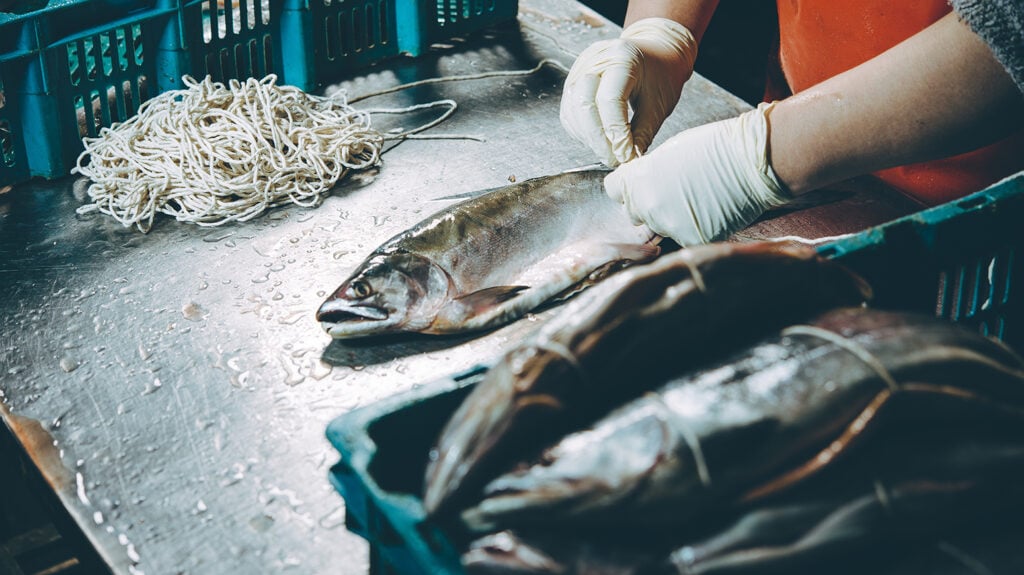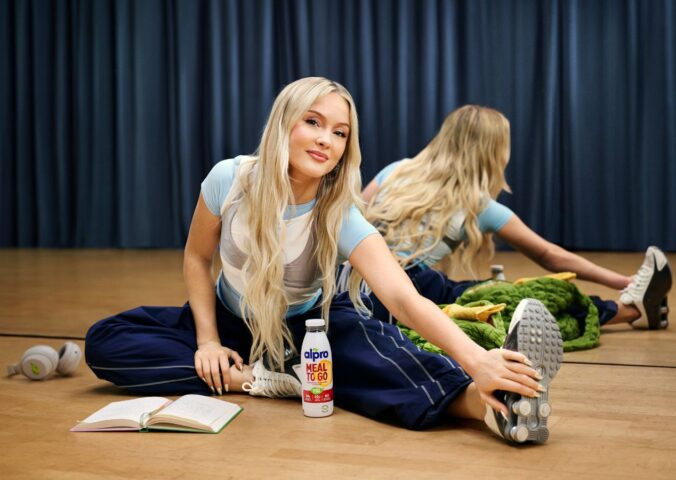In light of the Netflix hit Seaspiracy, Oceana has claimed ‘abstaining from seafood is not a realistic choice’.
Last month, the ocean conservation organization released an official statement on the film – which is drastically changing people’s perception of the fishing industry.
Oceana’s response to Seaspiracy
“We believe people have the right to choose what they eat, and we applaud those who make personal choices to improve the health of our planet,” Oceana wrote.
“However, choosing to abstain from consuming seafood is not a realistic choice for the hundreds of millions of people around the world who depend on coastal fisheries. Many of whom are also facing poverty, hunger, and malnutrition.”
“Additionally, we strongly believe that we can be most effective by working together to win policy victories that help to save the oceans and feed the world. Rather than by influencing personal choice.”
Ali and Lucy Tabrizi
In an exclusive interview with Plant Based News, Seaspiracy directors Ali and Lucy Tabrizi respond to Oceana’s claims.
“Oceana, although they’re doing incredible work around the world, their core message is telling people that one of the best things they can do to protect the ocean is to eat sustainable fish,” Ali told PBN founder Klaus Mitchell.
“Their own spokesperson said that there’s no real definition for it, and it’s really hard for consumers to work that out on their end.
“It just leaves you feeling like, well, there might be something lacking there.”
Ali continued: “They’re saying it’s not realistic for a global population to adopt a plant-based diet because there are people that depend on it. I think [they’re] missing the point.”
“There are hundreds of millions if not billions of people that can make the transition towards a more plant-based diet.
“And, the people that rely on those fish, the best thing we can do to ensure that they can survive – and that there’s enough fish for them to eat is – for us people who have the privilege to avoid eating it.”
“We’ve got to be really careful not to sort of weaponize poor and vulnerable people who are depending on fish, to justify our own eating habits.”
Lucy Tabrizi, Assistant Director
Lucy added: “I think we’ve got to be really careful not to sort of weaponize poor and vulnerable people who are depending on fish, to justify our own eating habits. [Especially] when we have the privilege to choose not to and to choose something else quite comfortably.
“I think the people that are watching this film on Netflix and are going to these NGOs websites looking for how to eat sustainably… They’re not the people that are relying on this for sustenance, for survival.”
Petition to protect the oceans
Last week, Ali and Lucy launched an online petition to help protect 30 percent of the oceans by 2030.
In just three days, the campaign had garnered more than 100,000 signatures. Now, it is over 200,000.
Following on from Seaspiracy‘s spotlight on the detrimental effects created by industrial fishing, the petition is calling for the creation of more ‘no-catch’ zones.
If successful, they will be instated in ‘at least’ 30 percent of waters around the UK.
“Unless we act now we will live to see the death of the oceans. And, our children will never know the wonder and beauty of our once thriving blue planet,” the petition reads.
“Seaspiracy has exposed the truth, but we can’t fix this on our own. Now we need action, and that’s where you come in. Together we can change this.”






